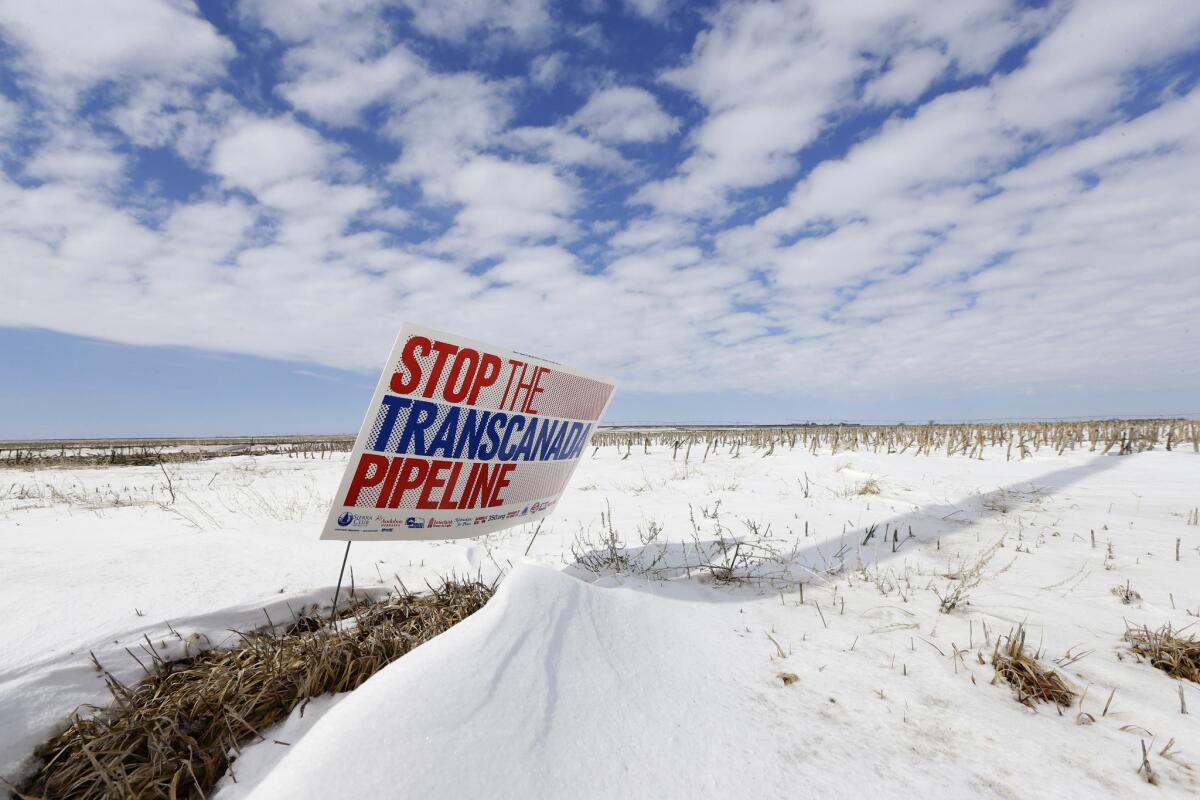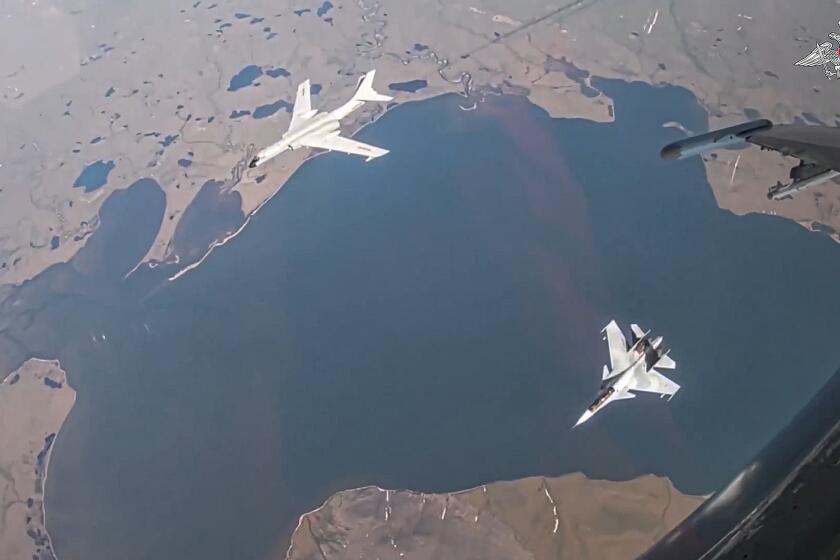Keystone pipeline firm files for eminent domain against Nebraska landowners

TransCanada Corp., the Canadian company behind the Keystone XL pipeline, filed eminent domain proceedings against an estimated 90 Nebraska landowners Tuesday to secure the right to build the controversial project across their property.
“Today we initiated these actions in the state of Nebraska, but that does not mean we’re done working toward a voluntary agreement,” said Andrew Craig, TransCanada’s land manager for Keystone projects. “Our goal today is that, over the next six months, we are able to address any concerns they have about the project.... The current landowner will continue to own the land.”
TransCanada’s legal filings are an effort to gain what is called an easement — the right to construct the pipeline on private land that others own. They are the latest step in a years-long fight over the project, which cannot go forward without President Obama’s approval.
The $5.3-billion project would carry oil from the tar sands of Canada through the nation’s heartland and, after connecting with existing segments, to the Gulf Coast. Much of the oil would be exported.
Nebraska is the project’s most contentious battlefield. A 2012 law allowed the governor to bypass the state Public Service Commission and give the project the go-ahead. Approval for the current route was granted in 2013.
In February, a lower court declared the law unconstitutional and left the troubled pipeline with no approved route through Nebraska. This month, however, the Nebraska Supreme Court reversed the lower court’s ruling and cleared the way for Obama to act.
The Republican-majority Congress has made Keystone XL one of its first priorities for 2015. Obama has pledged to veto the bill, which would take pipeline approval out of his hands.
Jane Kleeb, director of the anti-pipeline group Bold Nebraska, said Tuesday that TransCanada had spent the last six years “bullying” landowners into signing away the rights to their land, but a group of about 100 is prepared to continue fighting.
Landowners filed suit Friday, again asking a judge to declare the law that allows Nebraska’s governor to approve the pipeline’s route unconstitutional and to stop TransCanada from gaining access to the land.
Kleeb said the Nebraska Supreme Court allowed the law to stand by default. Four of the seven justices ruled that the law was unconstitutional, but five votes were needed. Three justices refused to rule on constitutionality; they said the landowners who filed suit did not prove they had legal standing to challenge the pipeline.
In this round of lawsuits, only landowners with written proof that TransCanada plans to build the pipeline on their property are involved. They have not yet been served with eminent domain notices, but they received a Dec. 15 letter announcing the company’s final offer before notices would be filed.
“I didn’t appreciate getting a letter at Christmastime saying, ‘Sign up now, because all offers will be off the table,’” said Nancy Allpress, whose family farm is bisected by the proposed pipeline route and who will be part of the suit against TransCanada.
“It’s our land,” said Allpress, whose farm has been in her husband’s family since 1886. “This is a foreign-owned company coming in and exercising eminent domain against our will for a project we believe is of no benefit to the United States. TransCanada has behaved like bullies with threatening tactics.”
Jeanne Crumly also plans to join the suit. The farm she and her husband operate has been in his family for more than 100 years, and they have grandchildren who hope to operate it someday. On Tuesday, Crumly broke into tears when talking about what she views as TransCanada’s threat against their livelihood.
Crumly said her family first heard from TransCanada when a company representative called at 9:30 p.m. a few years ago to tell them that the planned route would go through their land. At the time, she said, TransCanada made them an offer that was less than the price of a set of tires for an irrigation rig.
The company’s final offer “was better,” Crumly said. “But it’s not about the money.”
The pipeline “is simply a for-profit venture, and they’re asking landowners to accommodate that,” she said. “There’s no compelling reason whatsoever any of us would want this to go through our land, our state.... There is no benefit to our personal property or our state.”
Twitter: @marialaganga
More to Read
Sign up for Essential California
The most important California stories and recommendations in your inbox every morning.
You may occasionally receive promotional content from the Los Angeles Times.







